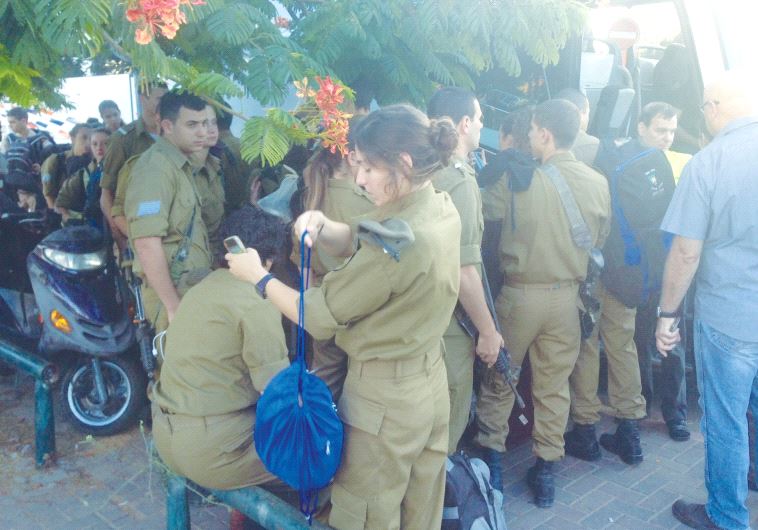Sleep-deprived soldiers fight fallout of rail closure
Delays ‘very hard to deal with,’ says one • ‘I’m not against the haredim, but it’s not okay to affect soldiers’ lives,’ says another.
 FRUSTRATED SOLDIERS wait outside the Arlozorov Bus Terminal in northeastern Tel Aviv.(photo credit: ELIYAHU KAMISHER)
FRUSTRATED SOLDIERS wait outside the Arlozorov Bus Terminal in northeastern Tel Aviv.(photo credit: ELIYAHU KAMISHER)